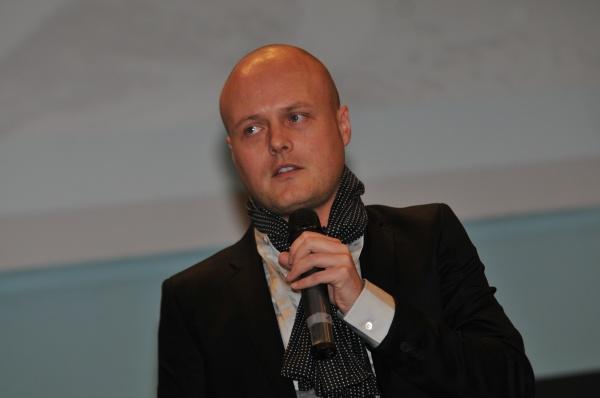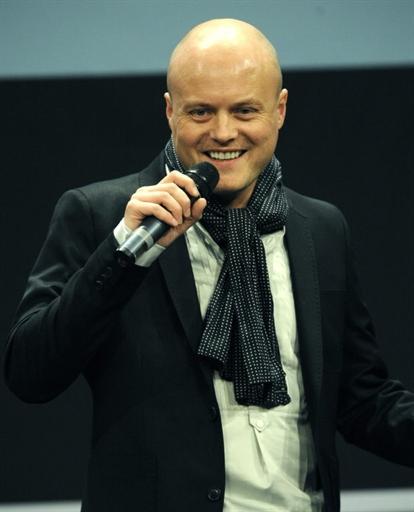Team Leopard-Trek manager cites importance of UCI biological passport data
Nygaard didn't sign riders with "grey areas"


Brian Nygaard has credited the UCI's biological passport with revolutionising the sport of cycling. The Team Leopard-Trek manager said that his team had used the scientific data to sign riders for the new team and that any riders with suspicious values were quickly distanced during negotiations.
"From the very start we had access to the biological passport and to the ADAMS system and each rider had an individual evaluation from medical experts who know a lot more about it than I do. Some riders didn't join the team because of that. I was not interested in looking at any grey areas," Nygaard told the press at the team launch in Luxembourg.
Nygaard unsurprisingly added that the team would have a zero tolerance policy when it came to doping. However he went on to suggest that the biological passport, which has recently faced a number of challenges in the courts, had revolutionised cycling.
"I really believe that cycling has changed a lot," he said.
"The big revolution for me has been the biological passport. I think people are starting to realise what a radical move it has been, how much the riders are tested and monitored because maybe 10 years ago when you caught someone it was a lottery.
"Now every rider, especially the stronger ones, are monitored a lot and riders who have values that are a little bit off are monitored even more. The cheaters are being caught."
The Dane went on to add that his team would have their own internal testing programme but that the system would never be as useful or as important as the UCI's passport system. He hinted that teams had used internal testing as a possible media stunt in the past.
The latest race content, interviews, features, reviews and expert buying guides, direct to your inbox!
"Of course we check our riders and we want them to be healthy and race fit but the era of an internal testing system is over. Now when you seen the biological passport and the support it has from the riders and the teams, something needs to be external to be independent and for that reason we rely on the biological passport.
"But of course we have a big company investment and you look out for your riders and you check that they're okay but I don't want to make a big story about having a big internal testing system."
When setting up the team in 2010, Nygaard told Cyclingnews that the team was based on trust, especially when it came to signing riders.
"You look at a rider's past and how they've behaved too. The most important thing when you hire someone is that you trust them," he said in August 2010.
And at today's presentation he reiterated that sentiment, adding that the fans are the ones left let down each time cycling is faced with a doping scandal.
"I think a lot of people have had their hearts broken by cycling both on this stage and where you sit but we keep falling in love again despite being disappointed from time-to-time. The thing with cycling is that it's so amazingly fascinating. You have heroes, villains, and winners and losers and in a way it's a lot like life. We want to race hard and race clean with a good image and a good belief but you have to earn that. I can't say you have to believe in us, it's your choice and we have to earn that belief."
The by-line for Team Leopard-Trek is 'pure racing'. During the team presentation Nygaard took time to explain its meaning.
"I honestly think there's a lot of bullshit in cycling. I think that it has been taken away from fans, you see very little racing and you see a lot of arguing, debate and politics, and you see headlines that are not about racing. The one thing that I'd like this team to do is take cycling back to its roots, back to racing.
"Cycling is about fit, healthy, clean athletes, putting a number on their back and racing and racing hard. All the money in the world, it doesn't buy you a soul. This is a team that has a soul. It's not about having the biggest bus, it's about having a good atmosphere and making the riders and staff feel good."
Daniel Benson was the Editor in Chief at Cyclingnews.com between 2008 and 2022. Based in the UK, he joined the Cyclingnews team in 2008 as the site's first UK-based Managing Editor. In that time, he reported on over a dozen editions of the Tour de France, several World Championships, the Tour Down Under, Spring Classics, and the London 2012 Olympic Games. With the help of the excellent editorial team, he ran the coverage on Cyclingnews and has interviewed leading figures in the sport including UCI Presidents and Tour de France winners.
